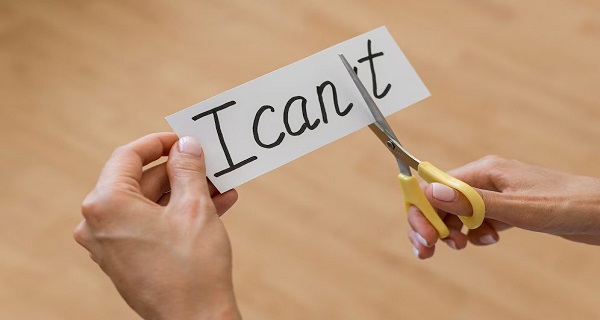-
Table of Contents
- Introduction
- How Self-Doubt Can Lead to Unfulfilled Dreams: A Cautionary Tale
- The Impact of Self-Doubt on Mental Health: A Closer Look
- The Power of Positive Thinking: Overcoming Self-Doubt
- The Role of Self-Esteem in Overcoming Self-Doubt
- The Benefits of Self-Reflection: A Guide to Overcoming Self-Doubt
- Conclusion
“Unlock your potential and conquer self-doubt – The Danger of Self-Doubt: A Morality Story of Limitation and Regret”
Introduction
The Danger of Self-Doubt: A Morality Story of Limitation and Regret is a cautionary tale about the consequences of allowing self-doubt to take control of our lives. It is a story of a young man who is faced with a difficult decision and the consequences of his choice. Through this story, we learn the importance of believing in ourselves and the dangers of allowing self-doubt to limit our potential. We also learn the importance of taking risks and the regret that can come from not taking them. This story is a reminder that we should never let our doubts and fears stop us from achieving our goals and living our best lives.
How Self-Doubt Can Lead to Unfulfilled Dreams: A Cautionary Tale
We all have dreams, hopes, and aspirations. We all want to make something of ourselves and achieve something great. But sometimes, our own self-doubt can get in the way of our dreams.
Take the story of John, for example. John was a bright and ambitious young man who had big dreams of becoming a successful entrepreneur. He had a great idea for a business and was determined to make it work.
But as he started to take steps towards making his dream a reality, he began to doubt himself. He started to think that he wasn’t good enough, that he didn’t have the skills or the knowledge to make it happen. He started to think that he was too young and inexperienced to make it work.
John’s self-doubt slowly began to take over and he started to make excuses for why he couldn’t pursue his dream. He told himself that he didn’t have enough money, that he didn’t have the right connections, that he didn’t have the right skills.
Eventually, John’s self-doubt became too much and he gave up on his dream. He never took the steps to make it happen and his dream remained unfulfilled.
John’s story is a cautionary tale of how self-doubt can lead to unfulfilled dreams. It’s a reminder that we should never let our own doubts and insecurities get in the way of our dreams. We should never let our own fears and anxieties stop us from taking the steps to make our dreams a reality.
So, if you have a dream, don’t let self-doubt stop you from pursuing it. Believe in yourself and take the steps to make it happen. Don’t let your dreams remain unfulfilled.
The Impact of Self-Doubt on Mental Health: A Closer Look

Self-doubt can be a powerful force in our lives, and it can have a significant impact on our mental health. It can lead to feelings of insecurity, low self-esteem, and even depression. It can also prevent us from taking risks and trying new things, which can lead to a lack of growth and development.
At its core, self-doubt is a fear of failure. It’s a fear of not being good enough, of not measuring up to our own expectations or the expectations of others. It can be a paralyzing feeling that keeps us from taking action and reaching our goals.
The good news is that self-doubt doesn’t have to be a permanent part of our lives. We can learn to recognize it, challenge it, and ultimately overcome it. Here are some tips for managing self-doubt:
• Acknowledge your feelings. It’s important to recognize and accept your feelings of self-doubt. Acknowledging them can help you to better understand them and take steps to address them.
• Challenge your thoughts. When you find yourself thinking negative thoughts, challenge them. Ask yourself if they are really true or if they are just a product of your self-doubt.
• Take action. Taking action is one of the best ways to combat self-doubt. Even small steps can help you to build confidence and move forward.
• Seek support. Talking to a trusted friend or family member can help you to gain perspective and find solutions to your self-doubt.
• Practice self-care. Taking care of yourself is essential for managing self-doubt. Make sure to get enough sleep, eat healthy, and take time for yourself.
Self-doubt can be a difficult emotion to manage, but it doesn’t have to be a permanent part of your life. With the right strategies and support, you can learn to manage your self-doubt and take steps towards a healthier, more confident you.
The Power of Positive Thinking: Overcoming Self-Doubt
Do you ever feel like you’re not good enough? Do you ever feel like you’re not capable of achieving your goals? If so, you’re not alone. Self-doubt can be a powerful force that can hold us back from achieving our dreams.
But there is hope! With the power of positive thinking, you can overcome self-doubt and start believing in yourself. Here are some tips to help you get started:
1. Acknowledge your self-doubt. The first step to overcoming self-doubt is to recognize it. Acknowledge that you have doubts and fears, and that it’s okay to feel this way.
2. Challenge your negative thoughts. Once you’ve acknowledged your self-doubt, it’s time to challenge it. Ask yourself if your negative thoughts are really true. Are they based on facts or just your own insecurities?
3. Focus on the positive. Instead of dwelling on the negative, focus on the positive. Think about all the things you’ve accomplished and all the things you’re capable of achieving.
4. Take action. Once you’ve identified your goals, take action. Break them down into smaller, achievable steps and start working towards them.
5. Celebrate your successes. Celebrate your successes, no matter how small. This will help you build confidence and keep you motivated.
With the power of positive thinking, you can overcome self-doubt and start believing in yourself. Believe in yourself and you can achieve anything!
The Role of Self-Esteem in Overcoming Self-Doubt
Self-doubt can be a powerful force that can hold us back from achieving our goals and living our best lives. It can be hard to overcome, but it is possible. One key factor in overcoming self-doubt is having a strong sense of self-esteem.
Self-esteem is the belief that we have in ourselves and our abilities. It is the foundation of our confidence and our ability to take risks and try new things. When we have a strong sense of self-esteem, we are more likely to take risks and try new things, even if we are afraid of failure. We are also more likely to believe in ourselves and our abilities, which can help us to push through the self-doubt and take action.
Having a strong sense of self-esteem can also help us to recognize our own worth and value. When we recognize our own worth and value, we are more likely to take care of ourselves and make decisions that are in our best interest. This can help us to stay focused on our goals and take action, even when we are feeling overwhelmed by self-doubt.
Finally, having a strong sense of self-esteem can help us to be more resilient in the face of failure. When we have a strong sense of self-esteem, we are more likely to recognize that failure is a part of life and that it is not a reflection of our worth or value. This can help us to stay focused on our goals and take action, even when we are feeling overwhelmed by self-doubt.
Overall, having a strong sense of self-esteem is an important factor in overcoming self-doubt. It can help us to take risks, recognize our own worth and value, and be more resilient in the face of failure. So, if you are struggling with self-doubt, take some time to focus on building your self-esteem and you will be well on your way to overcoming it.
The Benefits of Self-Reflection: A Guide to Overcoming Self-Doubt
Self-reflection is an important part of personal growth and development. It can help us to identify our strengths and weaknesses, and to understand our motivations and behaviors. It can also help us to overcome self-doubt and to become more confident in our abilities.
Self-reflection can be a powerful tool for overcoming self-doubt. By taking the time to reflect on our thoughts and feelings, we can gain insight into our own behavior and beliefs. This can help us to identify areas where we may be holding ourselves back, and to make changes that will help us to move forward.
When engaging in self-reflection, it is important to be honest with ourselves. We should not be afraid to admit our mistakes or to acknowledge our weaknesses. Doing so can help us to identify areas where we need to improve, and to develop strategies for overcoming our self-doubt.
It is also important to be kind to ourselves during self-reflection. We should not be too hard on ourselves, or focus too much on our mistakes. Instead, we should focus on our successes and the progress we have made. This can help us to build our self-confidence and to move forward with greater assurance.
Self-reflection can also help us to identify our values and goals. By reflecting on our experiences, we can gain insight into what is important to us and what we want to achieve. This can help us to make decisions that are in line with our values and to stay focused on our goals.
Finally, self-reflection can help us to develop a greater sense of self-awareness. By reflecting on our thoughts and feelings, we can gain a better understanding of ourselves and our behavior. This can help us to make better decisions and to become more confident in our abilities.
Self-reflection can be a powerful tool for overcoming self-doubt and for personal growth and development. By taking the time to reflect on our thoughts and feelings, we can gain insight into our own behavior and beliefs, and to identify areas where we may be holding ourselves back. We can also use self-reflection to identify our values and goals, and to develop a greater sense of self-awareness. By being honest with ourselves and being kind to ourselves during self-reflection, we can build our self-confidence and move forward with greater assurance.
Conclusion
The Danger of Self-Doubt is a morality story that serves as a reminder of the importance of self-confidence and the dangers of self-doubt. It is a cautionary tale that warns us of the consequences of allowing our doubts and fears to limit our potential and prevent us from achieving our goals. The story of the protagonist’s regret serves as a reminder that we should never let our doubts and fears hold us back from achieving our dreams.





